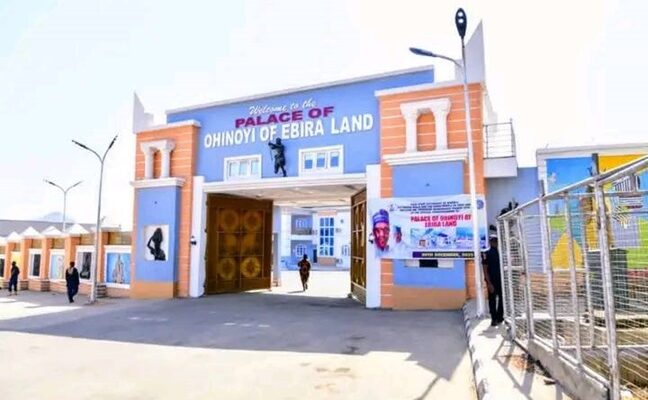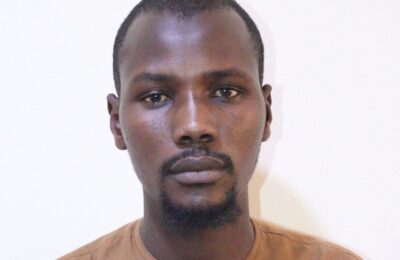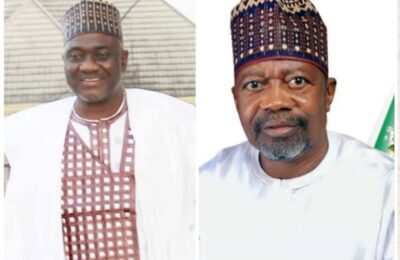The president, having served merely two years in office, is already strategizing for the 2027 electoral cycle. He is navigating the political landscape with a measured approach, engaging with his opponents and mending rifts with former adversaries, all in an effort to secure his hold on power.
The Ebira nation, possessing its own senatorial district yet situated precariously within Kogi State’s political demographics, is rapidly deteriorating due to the senseless acrimony and a win-at-all-cost mentality exhibited by our political elite. How long will we persist in our divisions and mismanage our “divine” political opportunities?
Since Kogi State’s inception, Kogi East has enjoyed a political preeminence over the other senatorial districts. However, a divine intervention has bestowed Kogi Central with the chance to assume a leadership role in state politics. We have had the privilege of occupying the Government House for on going three terms, with the prospect of a fresh fourth term.
It is disheartening that the state has yet to establish a functional understanding of power rotation, ensuring that every senatorial district has the opportunity to govern, rather than allowing the majority to monopolize power as was previously the case prior to divine intervention.
In contrast, Niger State exemplifies peaceful political coexistence by dividing itself into three zones that rotate the governorship on a zonal basis. A zone that produces a governor does not also produce a minister, reflecting the principles of equity and fairness.
The time has come for the governor to convene a stakeholders’ meeting to formulate a viable strategy for a peaceful power transition within the state.
Reflecting on our local dynamics, it is evident that cordiality between Kogi Central and Kogi East is lacking. We cannot maintain an everlasting presence in the Government House; at most, the current governor may secure a second term, after which power will inevitably shift to another district. Should it transfer to the West, they too may pursue a prolonged tenure, justifiable by the precedent established.
With Kogi East remaining out of power for an extended period and the existing animosity between the Eastern and Central districts, there is a possibility that they may choose to forgo another term and ally with the West, thereby marginalizing Kogi Central.
Presently, the gulf between the political elite is widening, exacerbated by supporters of various political factions who are inflaming tensions without considering the challenges that lie ahead in 2028. Those who lost in the previous election will be more prepared than the victors. The ramifications of the proposed amendments to the electoral act remain uncertain.
As the political landscape in Kogi evolves, the central leadership may find itself increasingly disregarded, lacking any leverage. Kogi West, with Hon. Faleke as a key ally, is positioned closer to the president.
We may face one of two scenarios: either Kogi East aligns with Kogi West against us, or Kogi Central is sidelined as the center utilizes the alliance between the two to favor the West.
Currently, the political strength of Kogi Central is contingent upon our occupancy of the Lugard House. Yet, at home, we are politically fragmented and weak. Supporters often mislead leaders into disregarding opposition figures for personal gain. The more crises there are, the more some benefit financially, while leaders, insulated by flattery, often recognize the reality of the situation only when it is too late.
It is imperative for the traditional leaders and elders of Kogi Central to unite and resolve the ongoing political strife between the APC and PDP leadership. The destructive politics played by both sides will yield adverse consequences if left unaddressed. Governor Ododo requires unified support, not a fractured one. The Ebira community must present a united front to be taken seriously. Political adversaries will exploit divisions in our ranks to destabilize us.
Had we been aligned, despite differing political loyalties, the Senate president would not have been able to treat our senator with such disregard. Had she been from Kano, he would not have dared. Senator Akpabio was able to exploit our political fissures to his advantage.
Just as the president is preparing for the future, Kogi’s governor should also be strategizing for the next election by fostering unity among all political stakeholders. In Ekiti State, former governors across party lines have endorsed the current governor for another term, while some opposition leaders and governors are pledging support for President Tinubu in 2027.
Despite the internal crises within the PDP, it remains a formidable force in Kogi Central under the senator’s leadership. It is crucial for all factions to collaborate and accommodate each other so that we can articulate a unified voice as the Ebira nation, thereby diminishing unnecessary external influences.
Kogi Central is currently the most poorly positioned in the National Assembly due to our method of selection. As long as we adhere to a one-term system, our representatives will inevitably play subordinate roles and will not achieve principal positions within the National Assembly. This reflects a significant political miscalculation; as one opinion leader noted, the prevailing mindset is that political office serves as a means for personal gain, thus deeming a single term sufficient for individual enrichment.
This mentality must be abandoned in favor of a more robust approach to representation, allowing for re-election of candidates so they may attain a ranking position. We must ensure that we elect intellectually capable and selfless individuals who are held accountable for their actions at regular intervals.
Unity among the Ebira people is essential.
I rest my case.
– Yusuf Obosi wrote from Kogi state.




